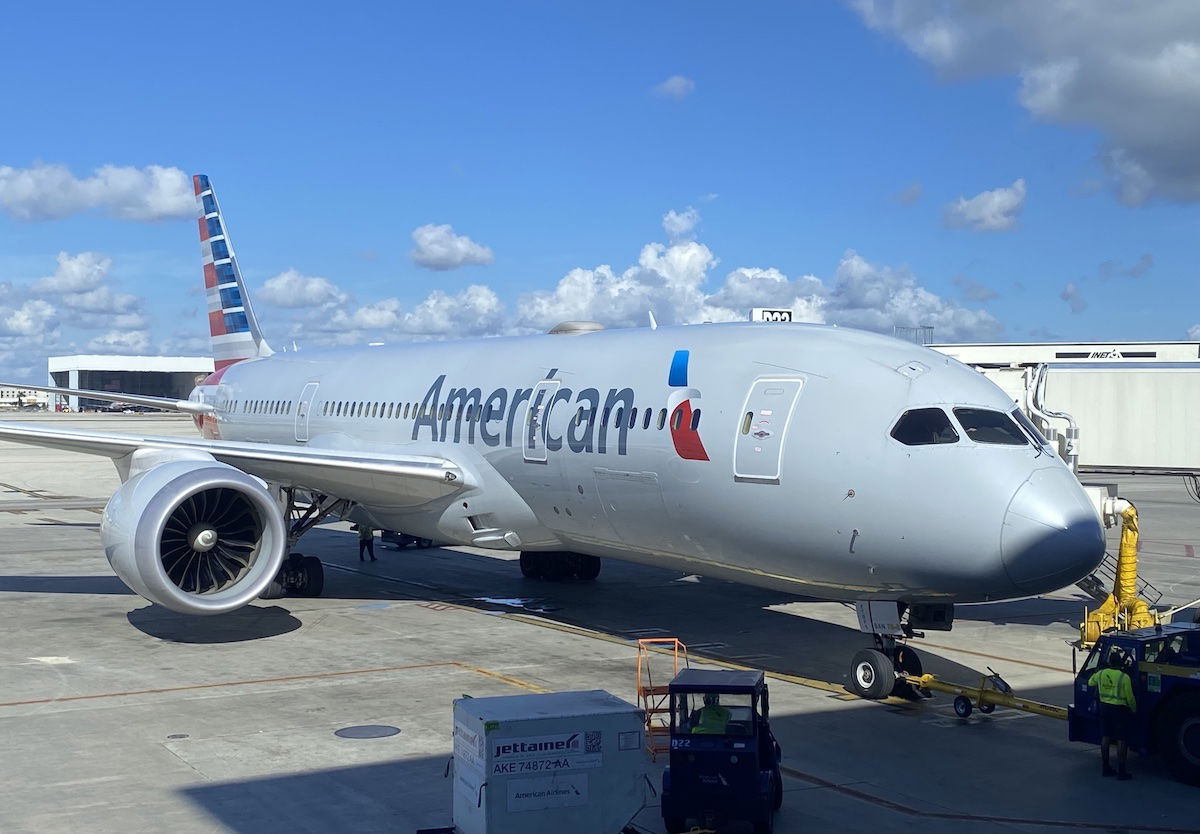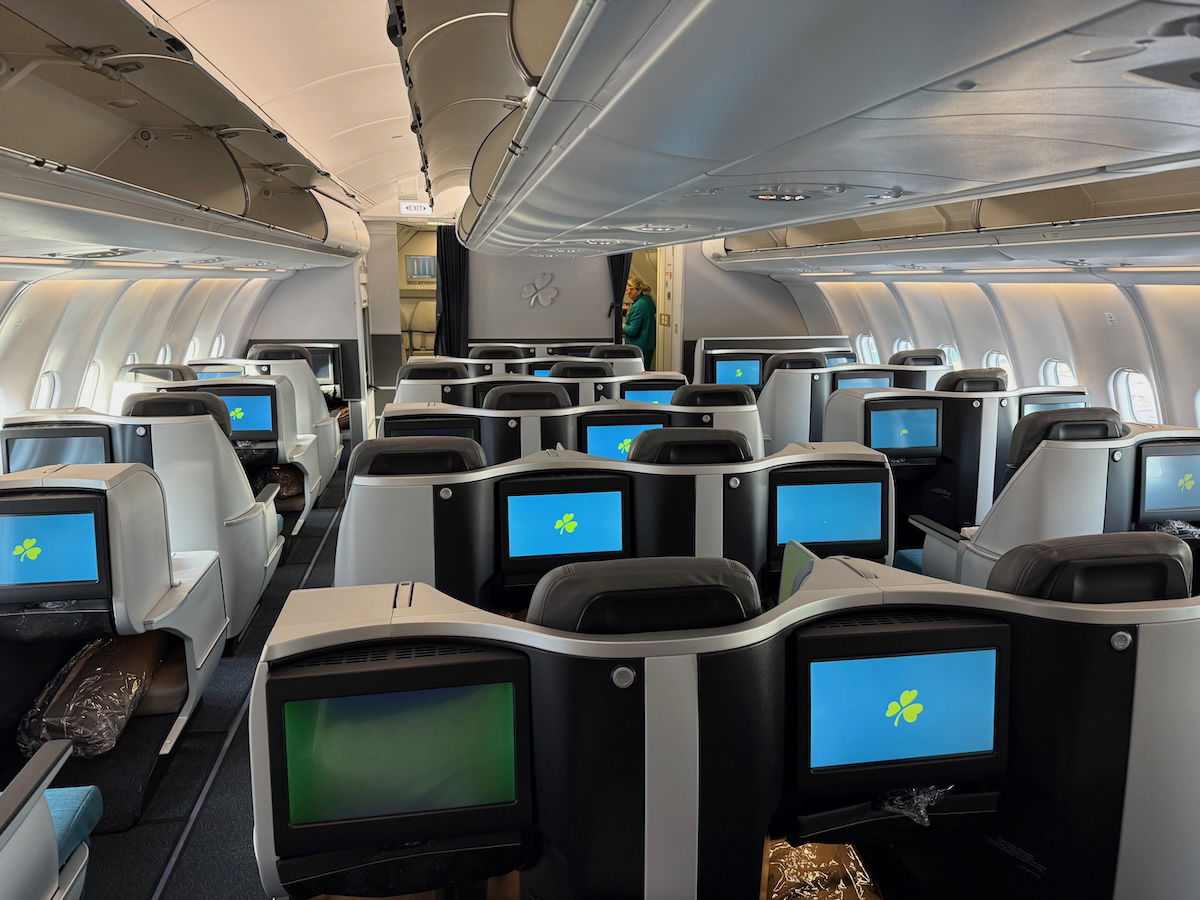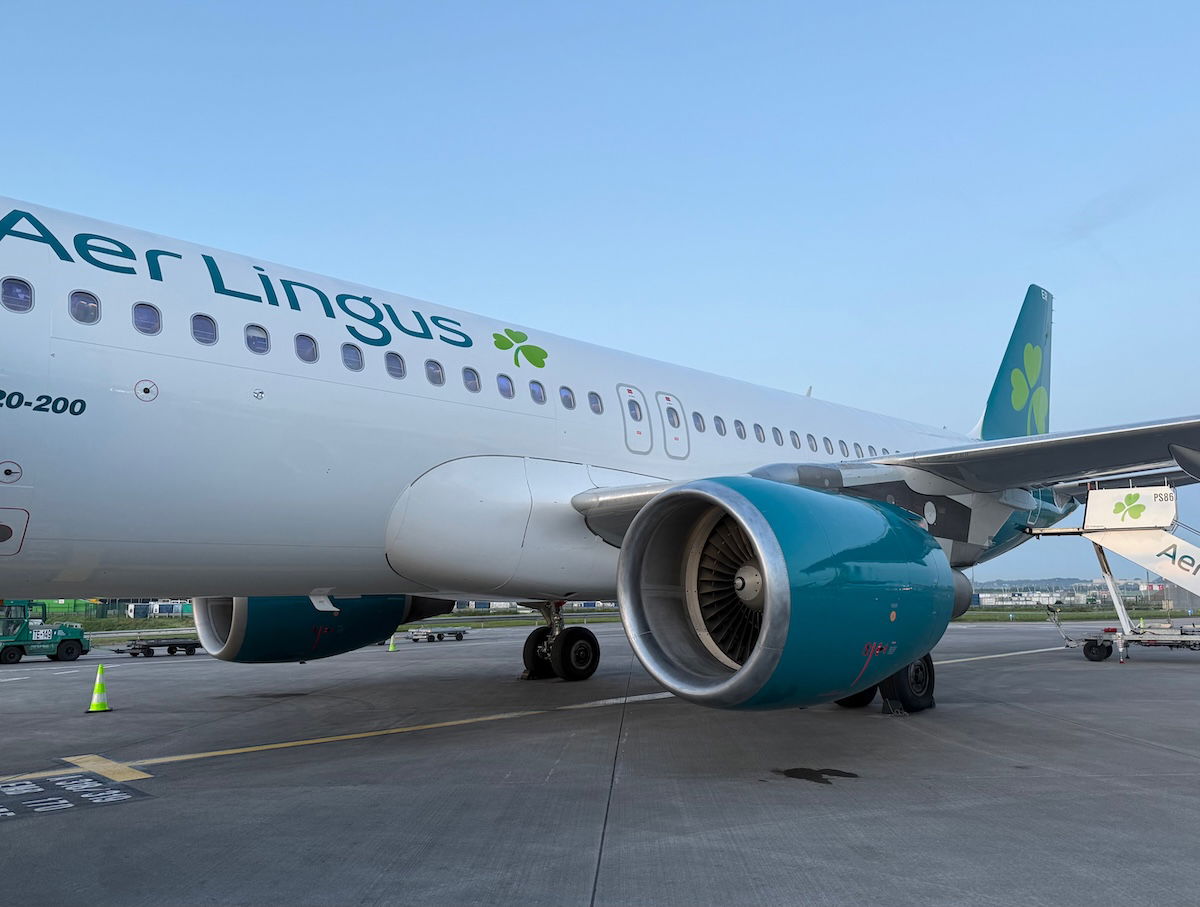In early 2022, American Airlines and Aer Lingus formally launched a partnership. However, the rollout has been incredibly strange. We saw reciprocal mileage earning introduced after nearly two years, we then saw reciprocal elite perks introduced after nearly three years, and now we’re seeing reciprocal mileage redemptions (finally!) after nearly for years.
In this post:
Details of the American & Aer Lingus partnership
In late 2020, Aer Lingus was approved to join the oneworld transatlantic joint venture. This previously included just American, British Airways, Iberia, and Finnair. Aer Lingus is owned by International Airlines Group (IAG), though prior to that hadn’t been part of this agreement, and the airline also continues to not be part of the oneworld alliance.
With this joint venture, the airlines can share revenue and coordinate fares, schedules, and routes, across the Atlantic. Then in early 2022, American and Aer Lingus launched a codeshare agreement for flights between the United States and Ireland.
This primarily included American placing its code on Aer Lingus flights within Europe, and Aer Lingus placing its code on American flights within the United States. This is intended to create a more seamless experience for passengers, so that they can easily book itineraries involving both airlines through either carrier’s website.
What’s odd is how little reciprocity there was with this agreement initially, both in terms of mileage opportunities and elite perks. It has literally taken years for this partnership to be fully rolled out, in a way that I don’t think I’ve ever seen before.
American & Aer Lingus frequent flyer reciprocity
Back in December 2023, American AAdvantage and Aer Lingus AerClub added reciprocal mileage earning opportunities. American AAdvantage members can earn redeemable miles and Loyalty Points for all flights that are marketed and operated by Aer Lingus. Miles are awarded based on revenue, which includes base fare and carrier imposed surcharges, but excludes government imposed taxes and fees.
Specifically, AAdvantage members can earn 5x miles per dollar spent on Aer Lingus flights (the same as the rate of earning on British Airways and Iberia), plus there are elite bonuses:
- AAdvantage Gold members get a 40% mileage bonus, for a total of 7x miles
- AAdvantage Platinum members get a 60% mileage bonus, for a total of 8x miles
- AAdvantage Platinum Pro members get an 80% mileage bonus, for a total of 9x miles
- AAdvantage Executive Platinum members get a 120% mileage bonus, for a total of 11x miles
Then as of November 2024, we saw the introduction of reciprocal elite perks. For example, AAdvantage elite members can receive perks like priority check-in, fast track security, priority boarding, lounge access, and free checked bags, when traveling with Aer Lingus.

Now as of January 2026, we’ve seen the introduction of reciprocal mileage redemptions. If you go to American’s website, you’ll finally see the availability of awards on Aer Lingus across regions. The award space should be the same as it is through other programs.


There are no carrier imposed surcharges on Aer Lingus redemptions through AAdvantage, and you can combine Aer Lingus with American or any other partner airline on an award.

This partnership execution is really strange
I’m really confused by the execution of Aer Lingus’ integration into the oneworld transatlantic joint venture. Ordinarily, the whole point of these joint ventures is to create as much metal neutrality as possible, which means giving customers an incentive to also travel on partner airlines.
Typically when a joint venture launches (or an airline is added to an existing joint venture), we almost immediately see reciprocal perks between airlines. This includes the ability to earn and redeem miles, take advantage of elite perks, etc.
In this case, it took over a year for American and Aer Lingus to even roll out a codeshare agreement, and then it took over five years for them to fully roll out reciprocal perks.
Interestingly Aer Lingus historically had a partnership with United. The two airlines finally ended their codeshare agreement in late 2023, but they still offer reciprocal mileage earning and redemption opportunities.
I have to imagine there’s a reason for this lackluster and very drawn out integration, I’m just not sure what it is. Anyone have any insights?
Bottom line
American Airlines and Aer Lingus launched a codeshare agreement in early 2022, roughly a year after Aer Lingus was approved to join the oneworld transatlantic joint venture. In late 2023, we saw the airlines introduce reciprocal points earning, then in late 2024 we saw the airlines introduce reciprocal elite perks, and now as of early 2026 we’ve seen the airlines introduce reciprocal points redemptions.
I’m happy to see the airlines now completing the promised integration of their partnership, I just can’t wrap my head around why this has taken so long.
What do you make of the American & Aer Lingus partnership?





Aer Lingus is one of the few foreign airlines that do not need a US partner to sell in the US. Unlike most European airlines on Atlantic routes, it sells more in the US than in Ireland. Most traffic is US to Ireland and Europe, not the other way round. This is because there are c.40m people of Irish descent in North America compared to only 5.5m in Ireland owing to history (potato famine, British...
Aer Lingus is one of the few foreign airlines that do not need a US partner to sell in the US. Unlike most European airlines on Atlantic routes, it sells more in the US than in Ireland. Most traffic is US to Ireland and Europe, not the other way round. This is because there are c.40m people of Irish descent in North America compared to only 5.5m in Ireland owing to history (potato famine, British rule, weather, etc). If only they had stayed, how much bigger Ireland would be?
Not really odd is how little reciprocity there was AND still is with Avios based carriers. Especially Iberia as well as British airways. One world alliance is kind of a mess, unless obviously you have top 1-2 one world tier. Even then still buggy.
Was just about to say this. This feels like a punch in the gut for those of us loyal to IB/BA, since we still won't be able to obtain Elite/Tier points on EI-marketed flights (despite all three being under the same holding company and having the same currency), while AA members will.
The issue is nobody at Aer Lingus seems to actually know about this partnership. The amount of times I’ve pulled up your website to show them the reciprocal benefits (lounge, checked bag, etc) is crazy.
Very true, and that also apples to bookings made via United. Fortunately, at least in my limited experience, despite what customer service agents might say to the contrary, things somehow work behind the scenes and I've never had to pay more than expected for bags, etc.
For years is a long time.
The reason is ASTRAL. It probably took time to get AA system to work with EI. I worked part-time for EI before Covid. There IT system is one of the oldest still used.
Hey Lucky
The reason is that IAG generally acts as more of a holding company in most cases vs a coordinating hierarchy. aka. they don't really force their airlines to do much aside from how they had EI join the OW JV for the motion/appearance of it.
In general, EI's North America strengths are always going to be in Boston, NYC, and Chicago. UA and B6 are better partners there (from an O&D perspective)...
Hey Lucky
The reason is that IAG generally acts as more of a holding company in most cases vs a coordinating hierarchy. aka. they don't really force their airlines to do much aside from how they had EI join the OW JV for the motion/appearance of it.
In general, EI's North America strengths are always going to be in Boston, NYC, and Chicago. UA and B6 are better partners there (from an O&D perspective) which is why, to this day, it's far easier (in my experience) to redeem UA or B6 miles on EI than it is with AA.
It's a bit illogical when EI is in the JV with AA but IAG doesn't force EI to change that so it just is what it is. I'll be curious to see how much EI award availability becomes available on AA vs UA/B6 with these changes. I rarely see AAdvantage offers connecting through DUB vs LHR. Hopefully, this will change that somewhat.
IAG (British airway, Aer Lingus, Iberia) is the Marriott of aviation. Ugh.
I'm only guessing but maybe it's IT-related. Aer Lingus' IT is really bad. They suuposedly have support on social platforms, but good luck getting a response. They still can't provide seat selection on partner Business Class bookings. One gets the impression that their back end is archaic and under-resourced.
More like Error-Lingus…
It's definitely a contributing factor. the reservations system they use is ASTRAL, a version of IPARS which was developed in the 1960's! Its' cheap, internally managed, but makes any integration a nightmare. Combine that with a very conservative and investment adverse culture you get a half-baked, one foot in/out JV, similar to the relationship IE has with BA and IAG and OneWorld.